Understanding the Growing Concerns Over Heavy Metals in Baby Food
Recent investigations and scientific studies have raised alarm bells about the presence of dangerous heavy metals such as arsenic, lead, mercury, and cadmium in popular baby food products. This has resulted in a wave of lawsuits claiming that contaminated foods are linked to developmental disorders like autism and ADHD. This article explores the evolving legal landscape, scientific evidence, regulatory responses, and what affected families can do to seek justice.
Overview of Heavy Metal Contamination in Baby Food
What types of heavy metals are commonly found in baby food?
Heavy metals such as arsenic, lead, mercury, and cadmium are frequently detected in baby food products. These toxic substances are known for their neurotoxic effects, particularly harmful during a child's critical developmental periods.
Where does contamination in baby food come from?
Contamination sources include environmental pollution, soil contamination, pesticides, and manufacturing processes. Rice-based ingredients, in particular, tend to accumulate higher levels of arsenic and other heavy metals, making certain products more prone to contamination.
Which products and ingredients pose higher risks?
High-risk foods are often rice or rice-derived products, which tend to absorb more heavy metals from contaminated environments. Manufacturers have faced scrutiny for insufficient testing practices, fueling concerns about safety.
How does heavy metal contamination in baby foods pose health risks, including the potential link to autism?
Heavy metal exposure in infants can result in serious health risks, especially affecting neurological development. Studies indicate that heavy metals like lead, arsenic, mercury, and cadmium can damage the developing brain and nervous system.
Children with autism often show higher concentrations of these metals, such as lead, in their bodies, hinting at a connection between early exposure and autism. Prenatal exposure to metals like cadmium and cesium has been linked to increased autism risk. Moreover, deficiencies in essential nutrients like zinc and manganese—also observed in children with autism—can worsen the harmful effects of heavy metals.
The accumulating scientific evidence suggests that consuming contaminated baby food may contribute to neurodevelopmental disorders, emphasizing the importance of regulatory actions to minimize exposure risks.
Recent Tests and Industry Reports Confirm Ongoing Heavy Metal Presence
Are there recent updates that indicate whether baby foods currently contain heavy metals?
Recent testing and industry investigations reveal that heavy metals such as arsenic, cadmium, and lead continue to be found in some baby foods. Consumer Reports' latest findings indicate that around 68% of tested products contained elevated levels of at least one toxic heavy metal. These concerns are particularly notable in rice-based products, sweet potatoes, and snack foods, which are more prone to contamination.
Despite efforts by some manufacturers like Gerber to improve safety measures, complete elimination of heavy metals remains challenging because these elements naturally occur in soil and water, from which crops are grown. Legislation such as California's AB 899 now requires companies to disclose detailed testing results, encouraging greater transparency. Many brands are increasingly adopting advanced testing protocols and ingredient selection strategies to reduce heavy metal levels.
Overall, the presence of heavy metals in some baby foods underscores the need for ongoing vigilance. Regulatory actions and industry responses are steps toward safer products, but concerns persist regarding potential health risks for infants and young children.
| Study/Report | Findings | Implications |
|---|---|---|
| Consumer Reports (2024) | 68% of tested baby foods contained concerning levels of heavy metals, especially rice products | Continued risk for neurodevelopmental harm |
| Healthy Babies Bright Futures (2023) | 95% contamination rate in tested baby foods, mainly rice cereals and snacks | Need for stricter testing and safety standards |
| California AB 899 (2024) | Mandates full transparency of heavy metal testing results from manufacturers | Promotes safety and accountability |
In summary, recent studies confirm that heavy metals are still present in baby foods, highlighting the importance of ongoing regulatory oversight and industry efforts to improve safety standards.
Safety of Popular Baby Food Products and Consumer Guidance
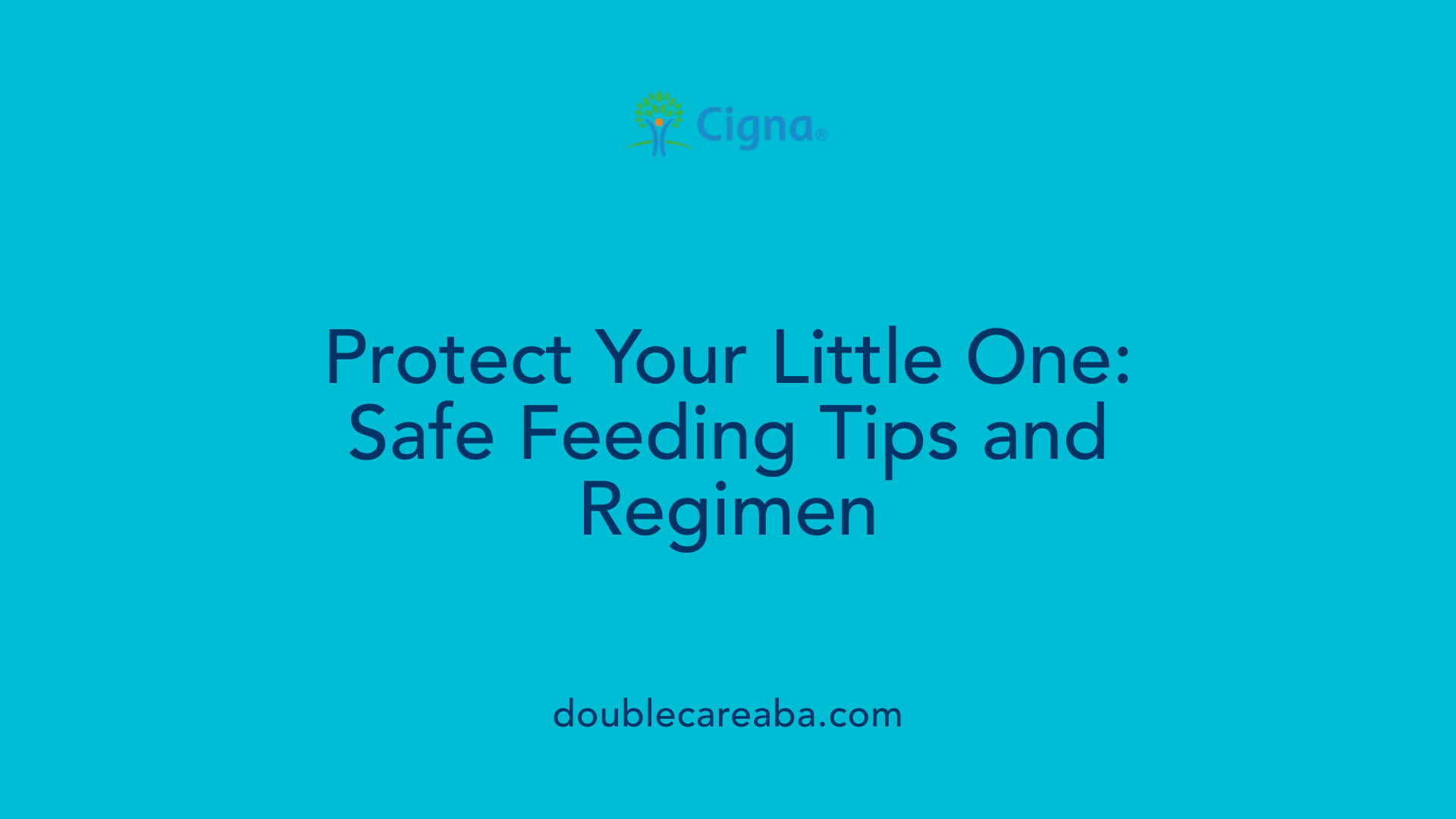
Is it safe to give certain baby foods, such as rice cereals, that are known to contain heavy metals?
It is generally not completely safe to give baby foods that are known to contain heavy metals, such as rice cereals, rice snacks, and fruit juices. Exposure to heavy metals like arsenic, lead, cadmium, and mercury can negatively affect a child's developing brain, potentially leading to behavioral and learning problems.
While manufacturers often claim their products are safe and within regulatory limits, independent tests and investigations have found that many baby foods contain measurable levels of these toxic metals. Regular consumption of contaminated foods can increase the risk of neurodevelopmental issues, including autism and ADHD.
To protect infants, parents are advised to limit their child's intake of rice-based products. Opting for a variety of fruits, vegetables, and grains helps reduce exposure. Preparing homemade baby foods allows for better control over ingredients. Parents should also test their water sources, avoid high-risk foods like rice cakes and certain types of fish, and stay updated on product recalls or recent testing results.
Although complete avoidance of heavy metals isn't currently feasible due to their natural presence in the environment, being selective with food choices and environmental measures can substantially minimize risk. Overall, prioritizing a diversified diet and staying informed are important steps for safer feeding.
Recalled Baby Food Brands and Safety Notices
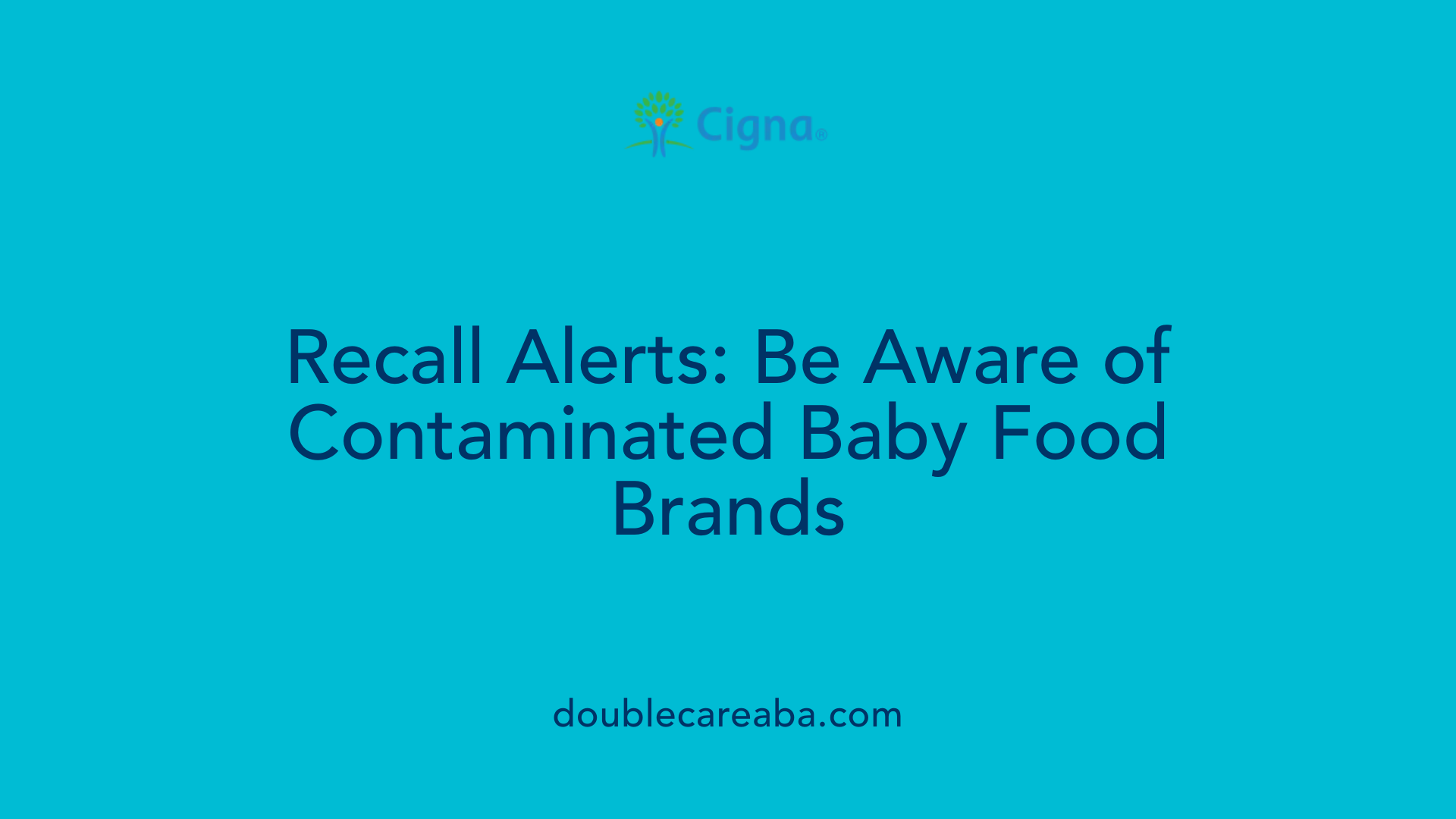
Are there specific baby food brands that have been recalled due to heavy metal contamination?
Yes, several brands have issued recalls following concerns over heavy metal contamination. For instance, in March 2025, Target's 'Good & Gather' brand recalled over 25,000 containers of their Pea, Zucchini, Kale & Thyme Vegetable Purée after tests revealed elevated lead levels. Additionally, Publix voluntarily withdrew GreenWise Pear, Kiwi, Spinach & Pea Baby Food pouches due to potential lead contamination.
Other companies, such as Beech-Nut, have previously announced recalls because of concerns surrounding arsenic and lead content. These recalls highlight the ongoing issue of heavy metals in baby foods and the steps retailers and manufacturers are taking to protect consumers.
The Food and Drug Administration (FDA) is actively working to set safety standards and conducts monitoring efforts to minimize heavy metal presence. Despite these measures, the presence of toxic metals in some products continues to pose health risks to infants.
Such recalls serve as a stark reminder to parents and caregivers to stay informed about product safety and to watch for announcements related to contaminated baby foods.
Legal Proceedings and the Ongoing Baby Food Lawsuits
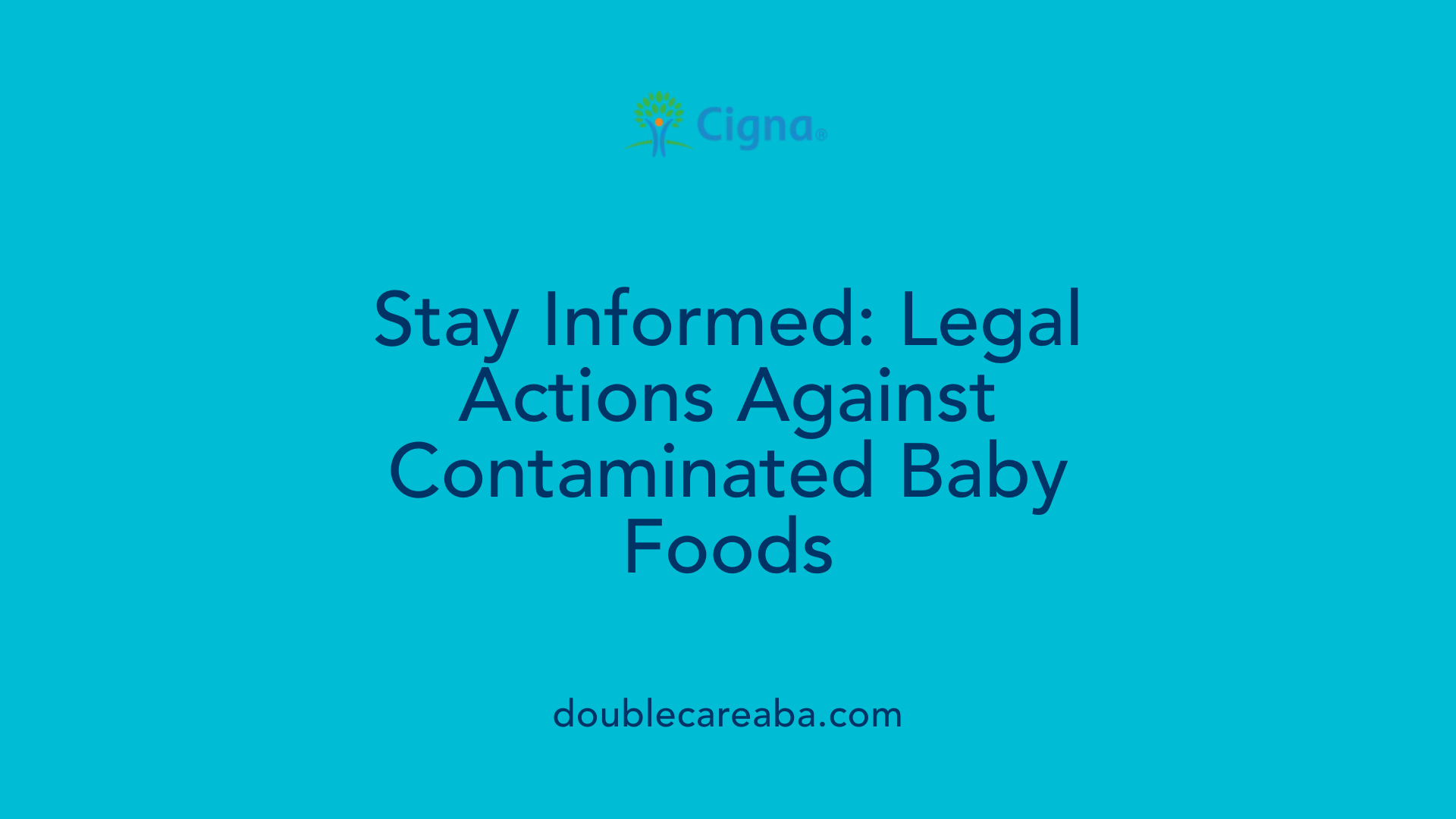
Details of the multidistrict litigation (MDL)
The ongoing legal battle surrounding contaminated baby foods is centralized in the MDL 3101 – In Re: Baby Food Products Liability Litigation. This federal multidistrict litigation was established in the Northern District of California to streamline numerous lawsuits filed by families across the country. The MDL consolidates claims alleging that heavy metals such as arsenic, lead, cadmium, and mercury in baby food products have caused serious neurodevelopmental harm, including autism spectrum disorder (ASD) and ADHD.
The court proceedings involve extensive discovery, expert testimonies, and procedural conferences designed to manage the growing volume of cases. Recent procedural milestones include deadlines for expert disclosures, motions to dismiss, and scheduled hearings to evaluate scientific evidence. The court aims to determine the liability of major brands and establish standards for future safety regulations.
Number and status of lawsuits
As of May 2025, there are over 156 lawsuits filed within this MDL. The number continues to grow as more families come forward with claims of developmental harm linked to baby food consumption. The litigation encompasses claims against several big-name companies, including Walmart, Gerber, Beech-Nut, and HappyBaby. Plaintiffs seek damages for medical expenses, therapy costs, emotional suffering, and the loss of quality of life.
Judicial actions include rulings that some companies must face trial, with courts indicating that unsafe safety practices or failure to adhere to internal safety limits could render some products harmful. While some claims were dismissed on procedural grounds, plaintiffs are afforded the opportunity to amend their complaints and pursue further evidence.
Major companies sued and allegations
Major corporations such as Walmart, Nestle, Campbell’s, and Hain Celestial are among those targeted in these lawsuits. The allegations against them are serious: selling baby foods contaminated with high levels of heavy metals that potentially cause neurodevelopmental damage including autism and ADHD.
For instance, Walmart’s Baby’s Choice and Parent’s Choice brands have been repeatedly scrutinized after independent testing revealed unsafe levels of arsenic, lead, cadmium, and mercury. Similar allegations target Gerber and Beech-Nut, with reports referencing high heavy metal concentrations in products marketed as organic or natural.
Despite these claims, defendants argue that their products are safe and that heavy metals are naturally present in the environment. Nevertheless, courts continue to evaluate the scientific and factual basis of these allegations, emphasizing the importance of public safety and corporate accountability.
Scientific Evidence Linking Heavy Metals to Autism and Neurodevelopmental Disorders
What scientific evidence links contaminated baby food to autism and neurodevelopmental disorders?
Recent scientific research, particularly studies published in 2023, has provided significant evidence connecting exposure to heavy metals in baby foods with neurodevelopmental issues such as autism spectrum disorder (ASD). These studies have observed higher concentrations of metals like arsenic, lead, and mercury in children diagnosed with autism compared to neurotypical peers.
Research illustrates that exposure to these toxic metals during critical periods of prenatal development and early infancy can interfere with normal brain growth and function. Such interference may increase the risk of developing autism and other related neurodevelopmental disorders.
Expert testimonies in ongoing court cases heavily lean on this scientific data to establish causation. Specialists argue that early exposure to neurotoxins disrupts neural pathways, leading to long-term behavioral and cognitive effects.
Health agencies, including the CDC, have documented the presence of these metals in children suffering from autism, providing further support for the connection. Overall, the expanding body of research underscores a strong link between contaminated baby foods and adverse neurodevelopmental outcomes, prompting increased regulatory scrutiny and litigation efforts.
Regulatory Responses and Legislative Initiatives
What legislative measures and regulatory efforts are in place to address heavy metal contamination?
Recent legislative and regulatory actions aim to reduce heavy metals in baby foods and ensure better safety for infants. The Baby Food Safety Act of 2024 is a significant law designed to establish stricter standards for heavy metal levels, particularly focusing on arsenic, lead, cadmium, and mercury. It pushes manufacturers to reformulate products and improve ingredient sourcing.
In January 2025, the Food and Drug Administration (FDA) issued voluntary guidance setting action levels for lead in baby foods. While acknowledging that no level of lead is entirely safe, these guidelines encourage companies to lower metal concentrations and enhance testing methods.
State laws are also evolving. For instance, California's AB 899 mandates full transparency, requiring companies to publish detailed results of heavy metal testing. This policy increases accountability and pushes the industry toward higher safety standards.
Industry responses include adopting cutting-edge testing technologies, sourcing ingredients from areas with low contamination, and reformulating products to meet new safety benchmarks. These efforts are complemented by ongoing scientific research and congressional investigations that highlight the importance of minimizing heavy metal risks. Overall, these combined efforts aim to protect vulnerable infants from long-term health problems related to heavy metal exposure.
Legal Rights, Compensation, and Family Support
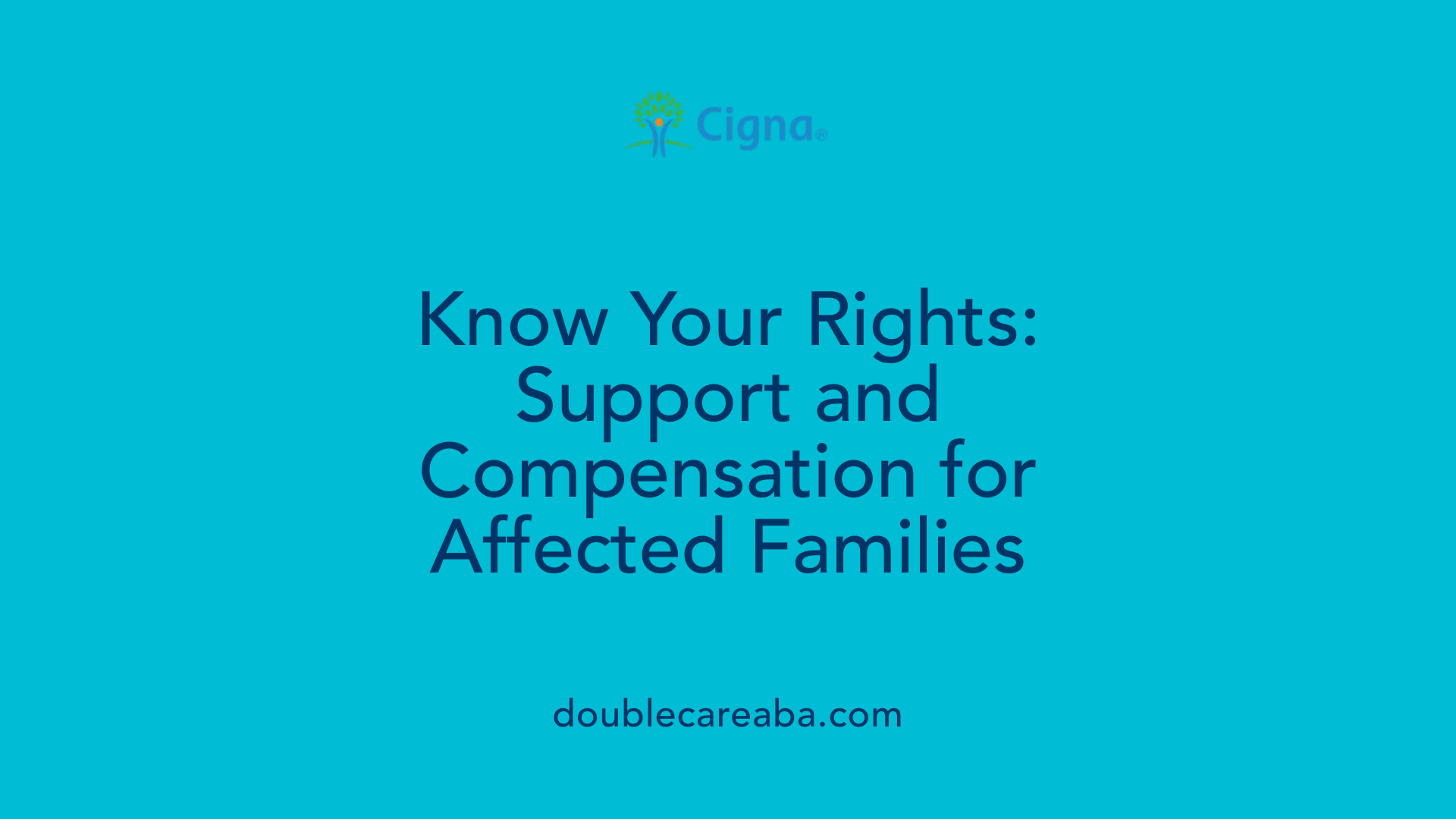
What legal options are available for families affected by toxic baby food linked to autism or neurodevelopmental disorders?
Families whose children have been diagnosed with autism or other neurodevelopmental issues after consuming contaminated baby foods have various legal avenues to pursue justice. One common approach is to file individual lawsuits or join class actions against the manufacturers of these products. These legal claims often focus on product liability, alleging that companies were negligent for failing to ensure the safety of their foods, or that they intentionally concealed information about heavy metal content.
The ongoing multidistrict litigation (MDL 3101) in California consolidates numerous lawsuits, providing a coordinated process for families to seek compensation. These legal processes aim to hold corporations accountable for their role in exposing children to neurotoxins. Claims may involve requesting damages for medical bills, therapies, pain and suffering, and future care needs.
Seeking damages and compensation
Recent cases and legislative initiatives emphasize the importance of holding companies financially responsible for the harm caused. Families can potentially receive settlements covering medical treatments, long-term care, emotional distress, and other related expenses. Some large settlements have been estimated to reach into the hundreds of thousands or even millions per affected child.
Legislative acts like the Baby Food Safety Act of 2024 and programs such as the FDA’s Closer to Zero initiative are designed to regulate and limit heavy metal levels in baby foods, further supporting families seeking accountability. Given the complexity and evolving legal landscape, expert legal guidance is essential.
Importance of legal guidance for families
Navigating these claims can be challenging, especially as courts consider scientific evidence linking heavy metal exposure to autism. Families should work with experienced attorneys who understand the scientific, regulatory, and legal intricacies. Timely action is crucial, as statutes of limitations may restrict the period during which claims can be filed.
Many families impacted by these cases find that legal support not only assists in pursuing compensation but also helps raise awareness and encourages stricter safety standards for baby foods in the future. Overall, understanding and exercising legal rights are vital steps toward justice and protecting future generations.
Guidance for Affected Families and Next Steps
What should parents or guardians do if they suspect their child has been affected by toxic baby food?
If parents or guardians suspect that their child has been affected by toxic baby food containing heavy metals, the first step is to seek immediate medical care. Healthcare providers can perform comprehensive testing to detect any harmful substances like arsenic, lead, mercury, or cadmium in the child's system.
It is crucial to keep detailed records of any symptoms or health issues, along with purchase receipts, packaging, and storage information of suspect food products. This documentation can be vital for both medical and legal purposes.
Consult with healthcare professionals and specialists knowledgeable about neurodevelopmental disorders to understand potential health impacts. Early diagnosis and intervention can significantly improve outcomes.
Simultaneously, reaching out to qualified legal experts who specialize in consumer safety or toxic exposure cases can help families explore their legal options. An attorney can advise on filing civil lawsuits, class actions, or joining ongoing multidistrict litigations to seek compensation for medical expenses, therapies, and emotional damages.
Legal action should be considered carefully, often after addressing the immediate health needs of the child. Parents may also consider participating in support groups or advocacy organizations fighting for stricter safety regulations and accountability.
By taking these steps, families can ensure their child's health is prioritized while seeking justice and accountability from manufacturers.
Summary and Call to Action for Families and Policymakers
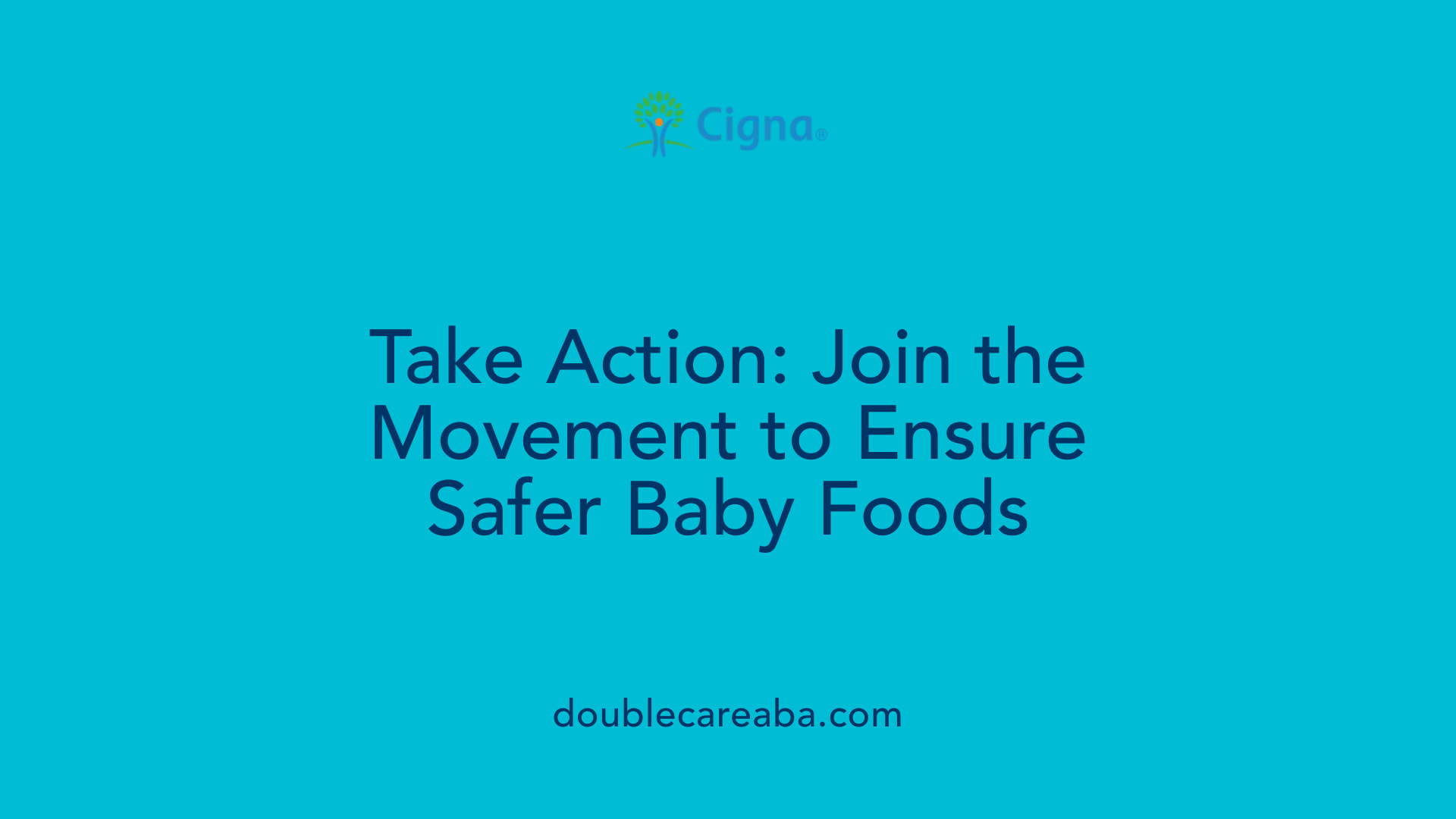
What is the current status of litigation and court rulings regarding baby food contamination and autism lawsuits?
As of May 2025, the legal landscape surrounding baby food contamination is very active. Over 156 lawsuits have been filed in the multidistrict litigation (MDL) centralized in the Northern District of California, focusing on heavy metals like arsenic, lead, mercury, and cadmium in popular baby food brands. These cases allege that the contamination has caused developmental disorders, including autism spectrum disorder (ASD) and ADHD, in young children.
Recent court proceedings have set deadlines for expert disclosures and discovery, with courts scheduling conferences to review case progress. Notably, courts have allowed many of these lawsuits to move forward after ruling that if safety standards were ignored, some products could be deemed unsafe—even if toxicity levels did not surpass specific thresholds.
A variety of major brands such as Gerber, Beech-Nut, Walmart, and others face accusations of knowingly selling contaminated products. Scientific testimony is playing a vital role, with expert witnesses linking heavy metal exposure to neurodevelopmental harm. Supporting this, studies from the CDC, independent testing by Reuters and Consumer Reports, and congressional investigations confirm high levels of these toxins in baby foods.
These ongoing lawsuits aim to hold manufacturers accountable for failing to warn consumers or adhere to safety standards. Courts continue to scrutinize evidence, with hearings scheduled to further explore causation and liability. The legal actions are shaping a framework for greater accountability and protective measures for children’s health.
Moving Forward: Resources, Legal Help, and Prevention
The mounting evidence linking heavy metals in baby foods to neurodevelopmental disorders such as autism underscores the urgent need for stricter regulation, greater transparency, and accountability within the industry. Families affected by exposure should seek legal counsel to understand their rights and options for compensation. Meanwhile, policymakers must continue to strengthen safety standards and enforce regulatory measures. As ongoing litigation unfolds and scientific research progresses, increased consumer awareness and proactive measures can help protect the most vulnerable populations — our children. Ensuring safer food sources and holding manufacturers accountable are crucial steps toward preventing future harm.
References
- Baby Food Autism Lawsuit | New June 2025 Update
- Baby Food Autism Lawsuit - June 2025 Update | King Law
- Several companies must face lawsuit over tainted baby ...
- Toxic Baby Food Lawsuit | Autism & ADHD Legal Claims
- Judge nixes parts of lawsuit claiming toxic metals in baby ...
- Walmart Baby Food Lawsuit - June 2025 Update | King Law
- Baby Food Autism Lawsuit | New June 2025 Update
- Baby Food Autism Lawsuit - June 2025 Update | King Law















